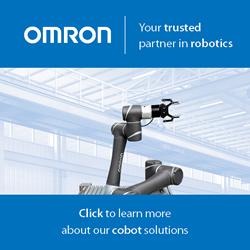Chef Robotics Launches AI-Powered Food Robot to Help Overcome Global Labor Shortage in the Food Industry
Chef's first-of-its-kind food manipulation AI model equips its robots with the flexibility needed to meet the demands of modern high-mix food production
SAN FRANCISCO, Calif. -- Today, Chef Robotics is launching a first-of-its-kind AI-powered flexible food robot made to help food companies overcome the global food labor shortage and increase production volume.
AI will have an immense impact on our world as the rise of foundational models like ChatGPT has shown. But the greatest impact will be on the physical world in the form of Embodied AI through robotics, given the physical world represents 90% of global GDP and the manual labor market accounts for half of all global GDP.
With 1,137,000 unfilled jobs and an annual staff turnover rate of 150%+, the American industry most in need of AI-enabled robotics is the food industry. While traditional automation exists in the food industry, until now, robots have only been built to automate one specific task each. They're not flexible enough to deal with the variety fundamental to making meals.
To solve this, Chef is leveraging mostly off-the-shelf hardware and combining it with modern advancements in AI to make it flexible enough to provide labor supply in the form of robotic automation to help food companies overcome their labor shortage. The robot operates using Chef's original food manipulation software, ChefOS.
Notably, unlike other food robotics startups, Chef's go-to-market is food manufacturing (not restaurants) where Chef can partially automate a food operation and thus add value in production to customers without requiring 100% full autonomy from the get-go. This enables Chef engineers to train ChefOS on real-world data accumulated from robots deployed at customer production sites in 6 cities across North America. To date, Chef has already completed over 20 million servings in production.
With every meal the robots assemble in production facilities, Chef's core AI models for food manipulation improve. The robots essentially act as data ingestion engines to train Chef's AI models to better adapt to variances in food and plate almost any ingredient, of any portion size, in any container over time.
As the AI that powers Chef's robots becomes more and more autonomous, Chef plans to leverage these systems to go from applications like industrial food production to ghost kitchens and ultimately, to deploying AI-enabled robots in every commercial kitchen in the country.
Today, Chef's AI-enabled robots are actively generating ROI for the food industry's leading manufacturers. Notable public customers that Chef has case studies with include:
Amy's Kitchen
Sunbasket
Chef Bombay
For example, Chef helped Chef Bombay reduce standard deviation by 30%, reduce food giveaway/wastage by 88%, increase labor productivity by 33%, and increase throughput by 9%.
Says Founder Rajat Bhageria, "Nobody has scaled intelligent robots at a massive scale. Just as Tesla ushered in the EV revolution, so too are we posed to help usher in the intelligent robotics revolution."
About Chef Robotics
Chef is the first company to have commercialized a scalable AI-driven food robotics solution. With over 20 million meals made in production, Chef leverages ChefOS, an AI platform for food manipulation, to offer a recurring revenue solution that helps industry-leading food companies increase production volume and meet demand. Headquartered in San Francisco, CA, Chef aims to empower humans to do what humans do best by accelerating the advent of intelligent machines.
Media Contacts
Rajat Bhageria
rajat@chefrobotics.ai
Sarah Mowad
sarah@chefrobotics.ai
Featured Product

Discover how human-robot collaboration can take flexibility to new heights!
Humans and robots can now share tasks - and this new partnership is on the verge of revolutionizing the production line. Today's drivers like data-driven services, decreasing product lifetimes and the need for product differentiation are putting flexibility paramount, and no technology is better suited to meet these needs than the Omron TM Series Collaborative Robot. With force feedback, collision detection technology and an intuitive, hand-guided teaching mechanism, the TM Series cobot is designed to work in immediate proximity to a human worker and is easier than ever to train on new tasks.
